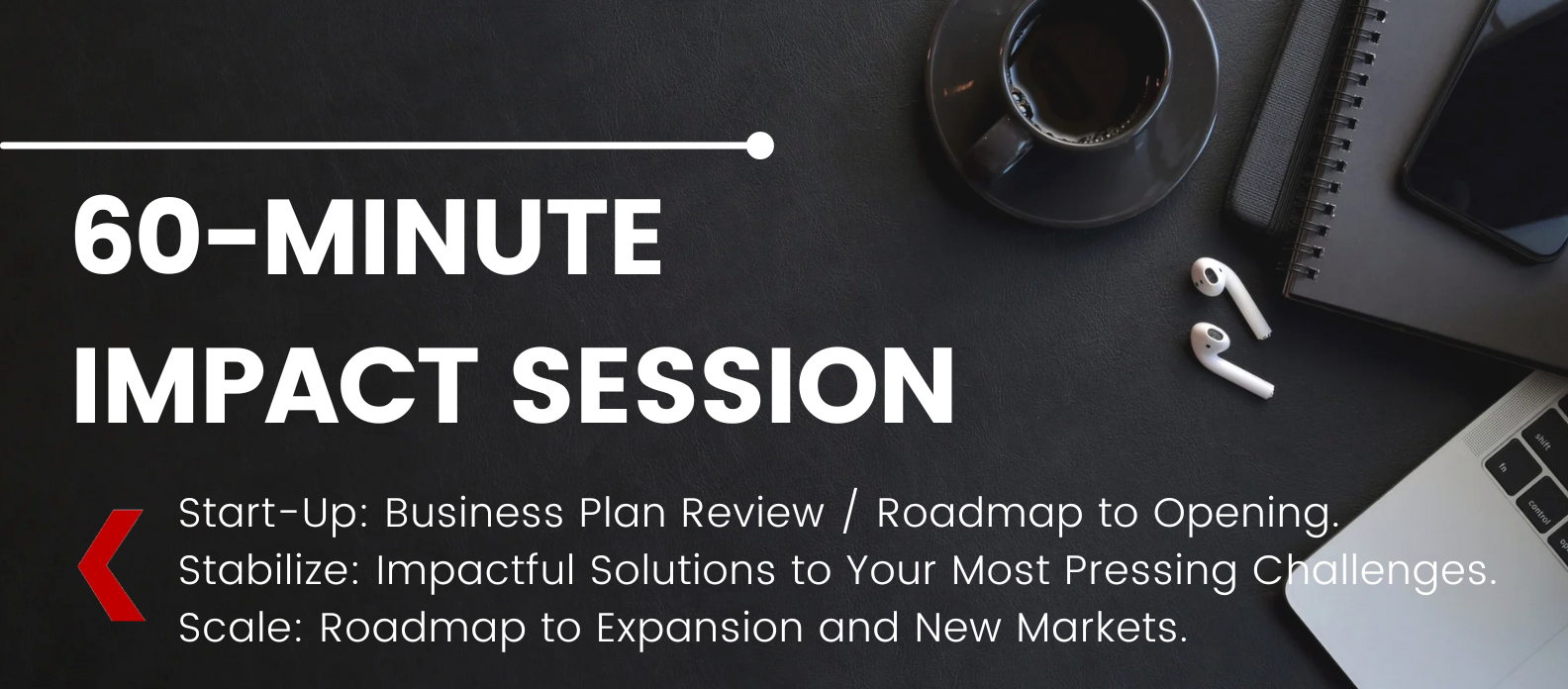The Banks Have it Wrong
by Doug Radkey

It’s widely assumed that a well-written business plan will impress banks and SBA-type programs, and secure the funding required to launch a hospitality concept.
When starting a bar, restaurant, or hotel, most people are told exactly that: “You just need a business plan.”
The problem, however, lies in how these business plans are created. Too often, aspiring entrepreneurs turn to fill-in-the-blank templates provided by banks or online resources. They believe that simply completing the form will open the doors to financing, and start them on the path to building a successful business.
Unfortunately, this approach can do more harm than good. Let’s explore why the traditional reliance on business plan templates, including AI-generated business plans, can set both businesses and lenders up for failure.
In this article I dive into real-world examples, examine the success and failure rates of loans in the hospitality industry, and outline why banks and other programs need to rethink their loan approval processes to reduce risks for not only themselves but the entrepreneurs they serve.
The Problem with Business Plan Templates
Imagine this scenario: You’re excited to open a hospitality business, but you don’t know where to begin. You do some research, and learn quickly that you need a business plan to secure a loan. The bank or Small Business Administration (SBA) offers you a convenient template to complete, or you find one online that seems like it will do the job. You fill in the blanks, submit the plan, and, to your delight, the bank approves all or a portion of your loan.
However, the approval doesn’t mean your business plan is actually sound. Read that again.
It only means it meets the basic requirements of the bank’s loan approval checklist. A template provides a false sense of security, making entrepreneurs think they’ve covered all their bases when, in reality, crucial aspects of the business are left unaddressed.
For example, I recently reviewed a business plan for a client who had used a bank-provided template prior to our engagement. The plan was approved by the bank, but upon closer inspection, I found numerous errors: the start-up financial projections were unrealistic, the cash-flow analysis was incomplete, and crucial aspects of market analysis were missing.
The result? The project is on track to run out of money before it even opens its doors.
This example highlights a troubling issue: Templates don’t provide clarity, and they certainly don’t prompt critical thinking about the true costs to start, and the real challenges that the business will face once it’s operating.
The Risks of Using Templates
Business plan templates may seem like an easy solution, but they come with significant risks.
- False Sense of Security: A completed template may look professional, but it doesn’t guarantee that the plan is sound or comprehensive. Key elements can be glossed over, copy and pasted, or simply misunderstood.
- Lack of Critical Thinking: A template doesn’t ask tough or industry-specific questions. It doesn’t force you to analyze the competitive landscape, identify potential risks, or develop a clear financial strategy around a unique concept.
- Inadequate Financial Analysis: Templates often provide a basic structure for financial projections but fail to help you understand the true costs of starting and running a business. A template won’t be specific to your concept, your revenue and cost channels, or industry benchmarks. The template won’t catch errors in your financials, leaving you and the bank exposed to significant risk.
- Inability to Stand Out: In a crowded market such as the US, Canada, or Europe, differentiation is key. A cookie-cutter business plan won’t help you stand out from the competition. Despite handing them out, banks see thousands of these plans, and if you don’t demonstrate why your concept is unique and viable, you’re setting yourself up for denial.
The Dangers of AI-Generated Business Plans
As technology advances, AI-powered business plan generators are becoming more popular. I’ve seen a few ads for them over the past few months.
These tools claim to be able to create a business plan in minutes, promising efficiency and ease. However, relying on AI to write your business plan is just as dangerous as using a template. The same issues apply: lack of clarity, shallow financial analysis, and the absence of critical thinking.
AI-generated business plans may provide a surface-level solution, but they cannot replace the deep analysis required to make a business successful. Business plans need to be customized and thought out thoroughly, with insights drawn from real-world strategic planning.
Hospitality Industry Loans: Success and Failure Rates
The hospitality industry—particularly the accommodation and food service sectors—has one of the highest loan approval rates, but it also has some of the highest operator failure rates.
According to the U.S. Small Business Administration, in 2022 alone, 6,297 loans were approved for the accommodation and foodservice industry. These accounted for 13.2 percent of all small business loans, and 19.2 percent of total loan dollars. The average loan amount was US $784,768.
Despite these impressive loan numbers, the success rate of a business in this industry tells a different story. Only about 20 percent of hospitality businesses make it to their fifth year, and the average time to pay off a business loan ranges from five to ten years. The failure rates are driven by various factors, including cash-flow problems, a lack of market understanding, and poor financial planning.
So, why do banks continue to approve business loans based on inadequate business plans?
The Need for More than a Business Plan
Each reason for a business failing points to one underlying cause: lack of strategic clarity. In many cases, these businesses began with a standard business plan but skipped the other non-negotiable playbooks truly needed to be successful.
A well-rounded approach to strategic planning includes much more than a business plan.
Aspiring or seasoned bar, restaurant, and hotel operators need to develop feasibility studies to determine whether their business models can succeed in their target market. They also need concept development plans, prototype drawings, brand strategy plans, tech-stack plans, marketing plans, and financial playbooks.
Only after these steps are completed should the final business plan be written.
How Banks Can Improve Loan Success Rates
Banks have an opportunity to reduce their risks significantly—and increase the success rates of the businesses they fund—by requiring more than the completion of a business plan template during the loan approval process.
Instead, they should request detailed feasibility studies, along with the other playbooks, that go beyond the basics.
By working with entrepreneurs to ensure they have true clarity about their business model, market conditions, and financial outlook, banks can reduce default rates, and build stronger partnerships with their clients.
In addition, by encouraging the use of customized plans over templates or AI-generated plans, banks can ensure that they are investing in businesses with a clear path to success.
My Final Thoughts
Yes, a business plan is a vital tool for any entrepreneur, but it must be more than just a template, and lenders need to stop relying on these fill-in-the-blank approaches.
To build a successful business, you need more than a plan on paper; you need clarity, strategy, and a deep understanding of your market and financials. It’s time for banks, financing programs, and even angel investors to get it right and demand more than a standard business plan template. Only then will both the business and the lender see the long-term success they’re striving for.
Perhaps they, too, can then achieve success rates in the 90th percentile.
Image: Canva

Looking to Start, Stabilize, or Scale? Book Below to Setup a 60-Minute Result-Driven Impact Session.
